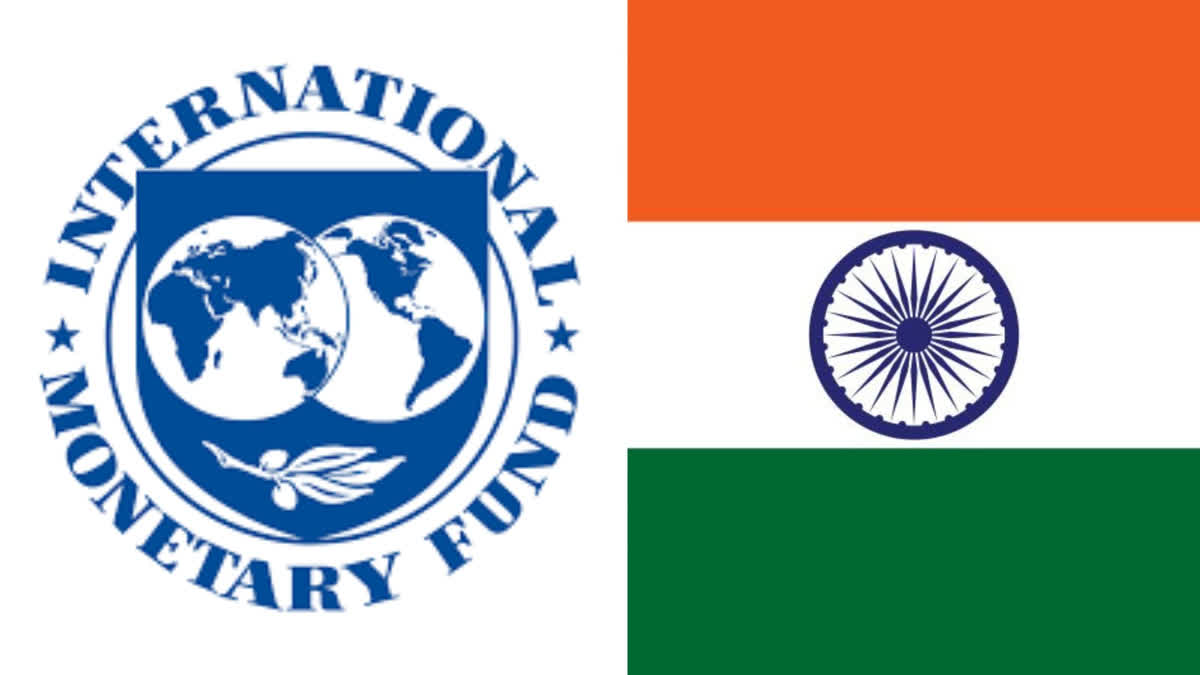New Delhi [India] : The International Monetary Fund (IMF) has raised India's GDP growth forecast for India for the financial year 2023-24 to 6.3 per cent, its second upward revision since the April report. According to the latest World Economic Outlook report by the multilateral agency, which was released on Tuesday, the growth is expected to grow by 6.3 per cent this fiscal year, 20 basis points (100 basis points is equal to 1 percentage point) higher than what it had estimated in its previous report.
IMF attributed stronger-than-expected consumption during April-June for the upward projection in the growth estimate. The growth forecast was raised from 5.9 per cent in April, 6.1 per cent in July, to 6.3 per cent now, taking it closer to the 6.5 per cent predicted by the Indian authorities.
For 2024-25, IMF pegged India's GDP growth at 6.3 per cent, though unchanged from its earlier two projections. IMF projected India's consumer inflation at 5.5 per cent this fiscal, against RBI's 5.4 per cent forecast. RBI expects Q2 (Jul-Sep) inflation at 6.4 per cent, Q3 (Oct-Dec) at 5.6 per cent and Q4 (Jan-Mar) at 5.2 per cent. For Q1 (2024-25 fiscal), it is projected at 5.2 per cent.
Overall, the IMF forecast global growth to slow from 3.5 per cent in 2022 to 3.0 per cent in 2023 and 2.9 per cent in 2024, well below the historical (2000-19) average of 3.8 per cent. Advanced economies are expected to slow from 2.6 per cent in 2022 to 1.5 per cent in 2023 and 1.4 per cent in 2024 as monetary policy tightening starts to bite.
Also Read : Automobile retail sales jump 20 pc in Sep as demand soars in festive season
Emerging markets and developing economies are projected to have a modest decline in growth from 4.1 per cent in 2022 to 4.0 per cent in both 2023 and 2024. Global inflation is forecast to decline steadily, from 8.7 per cent in 2022 to 6.9 per cent in 2023 and 5.8 per cent in 2024, due to tighter monetary policy aided by lower international commodity prices.
"Food security concerns prompted recent export restrictions in India, the world's largest rice exporter. Risks to prices are tilted to the upside, stemming mostly from the ramifications of the end of the Black Sea Grain Initiative and uncertain effects of El Nino (see chapter text), possibly exacerbated by the proliferation of food export restrictions," IMF said.
Core inflation, which is the change in the costs of goods and services barring those from the food and energy basket, is generally projected to decline more gradually, and inflation is not expected to return to the target until 2025 in most cases."



